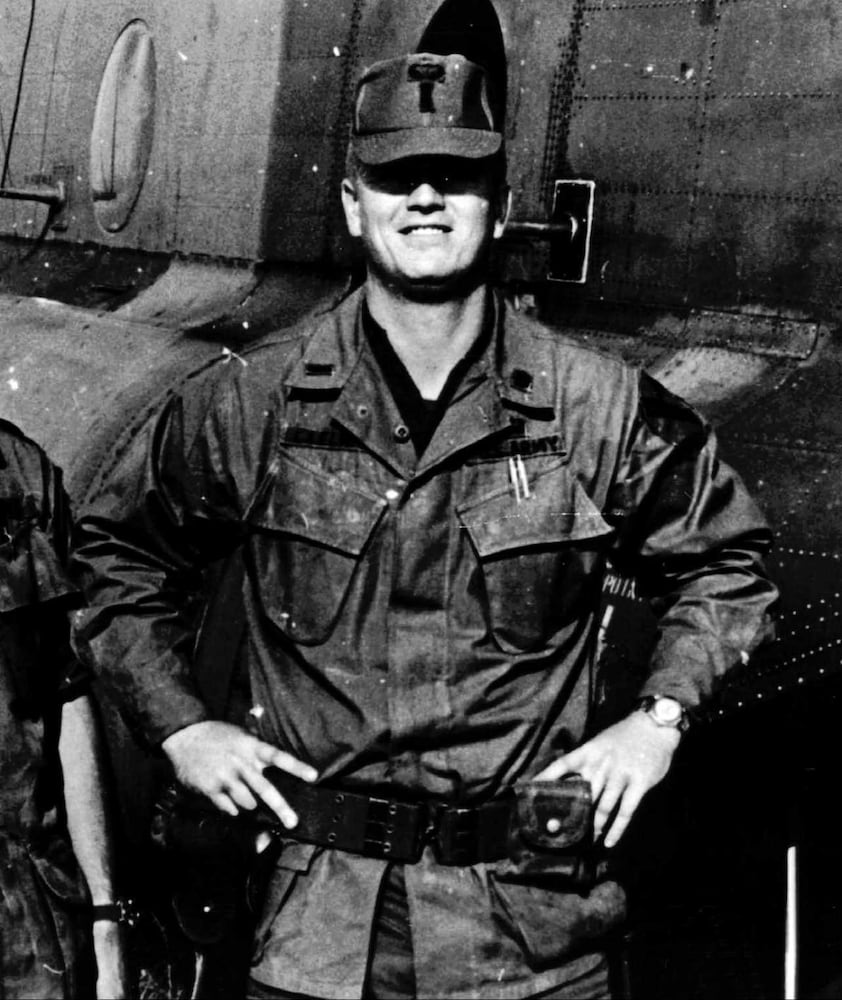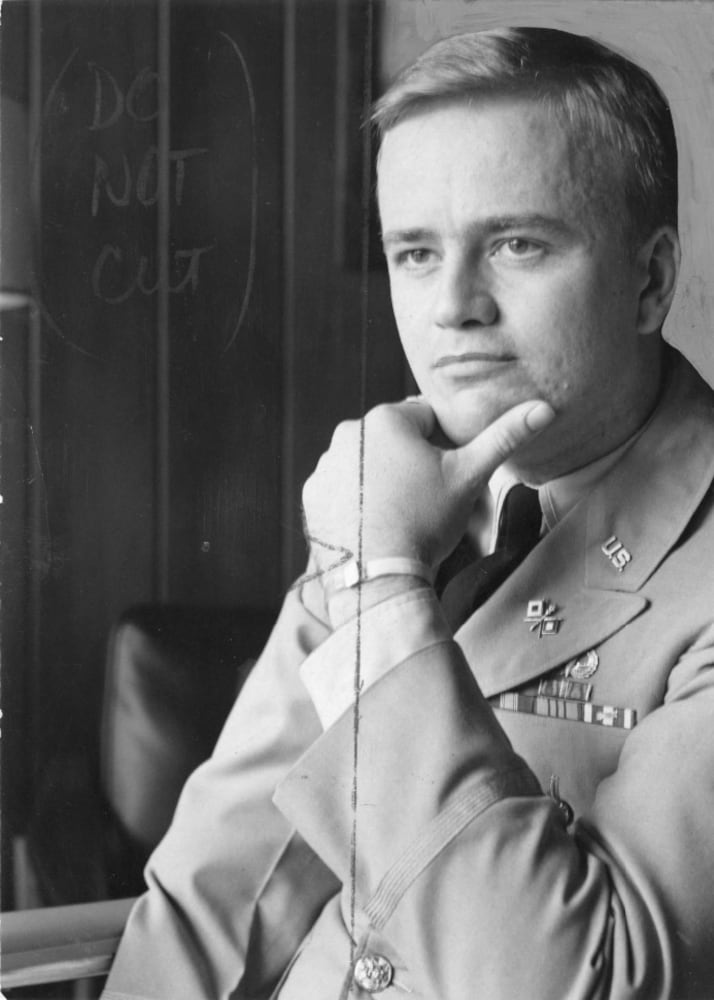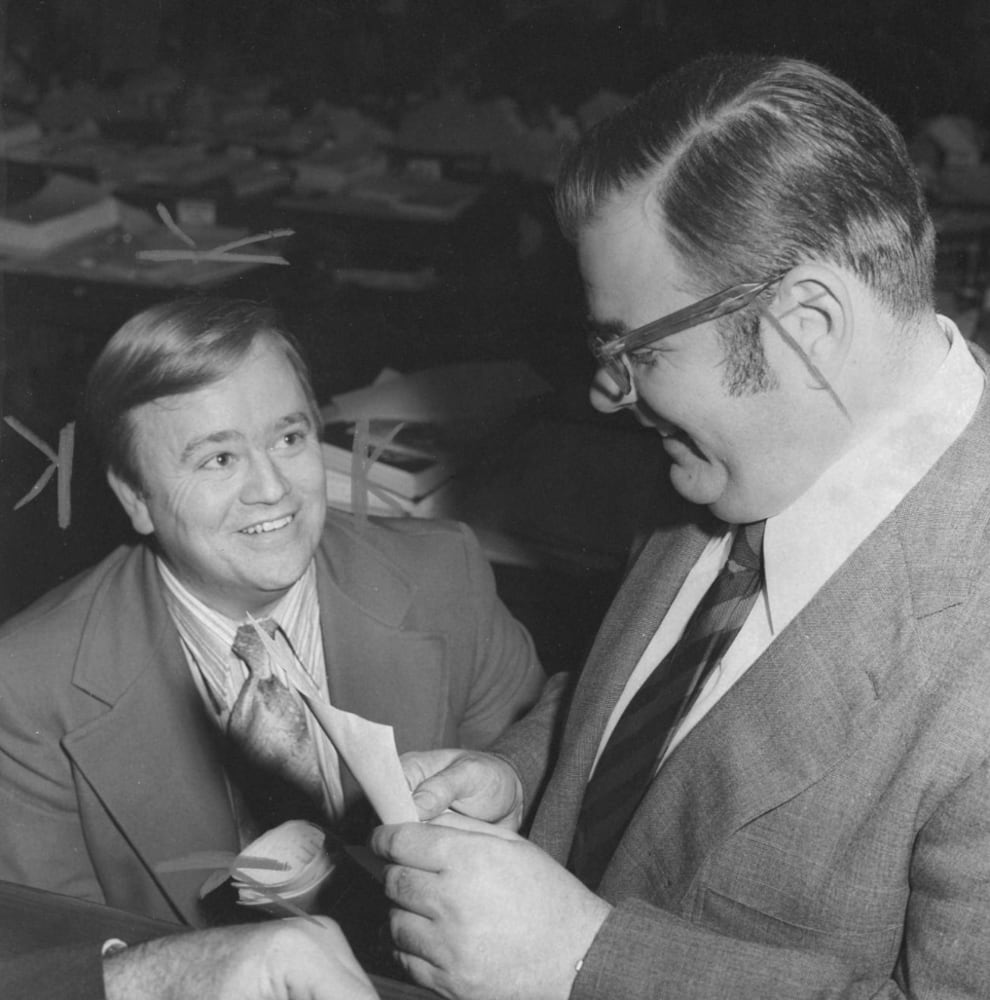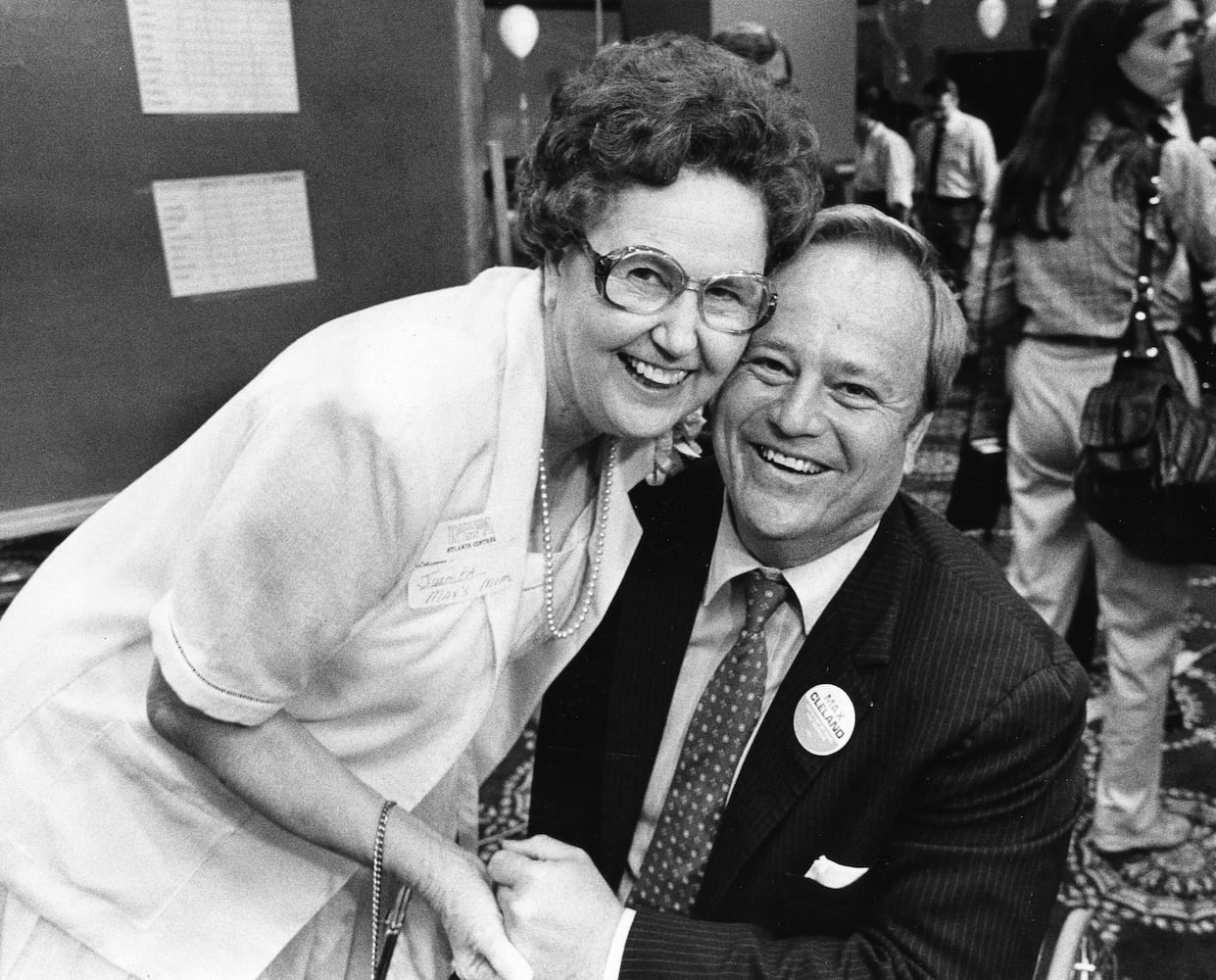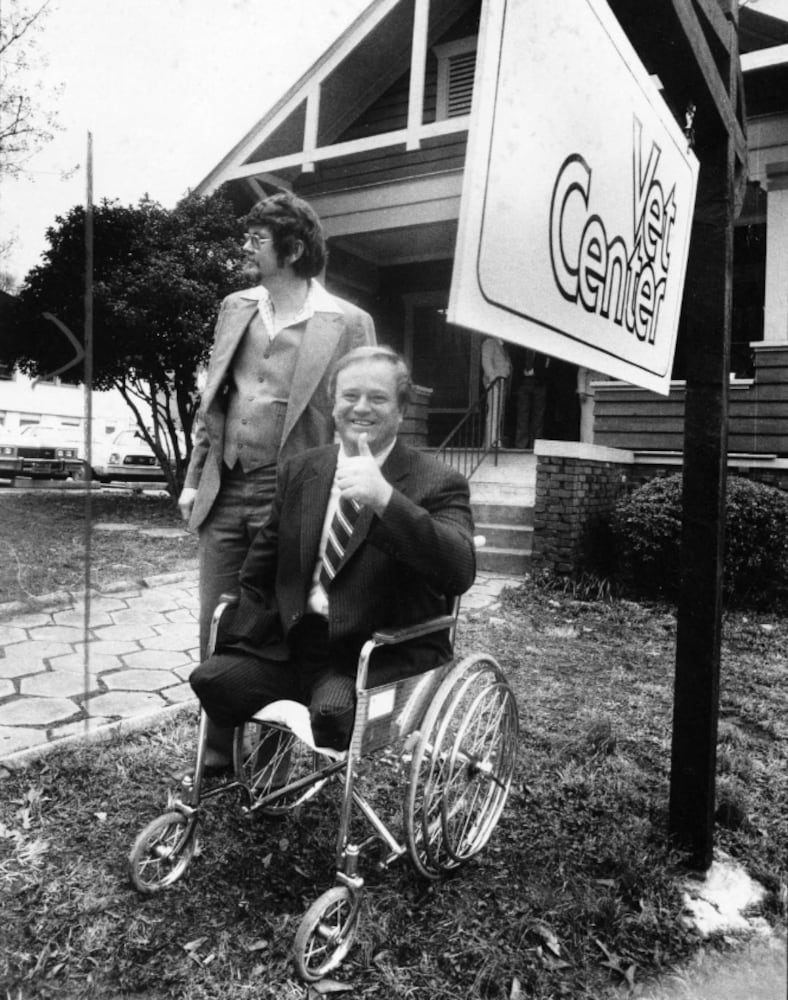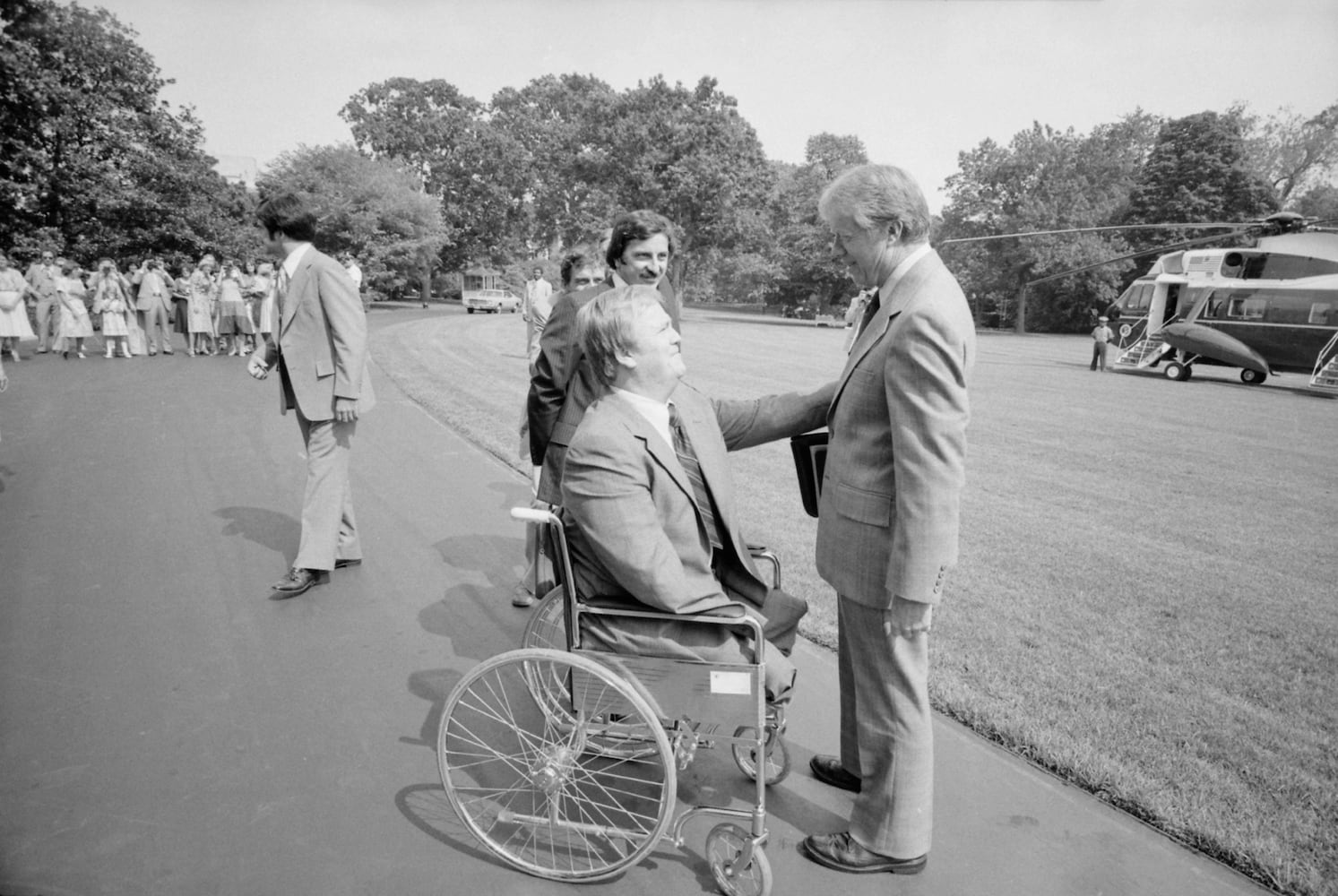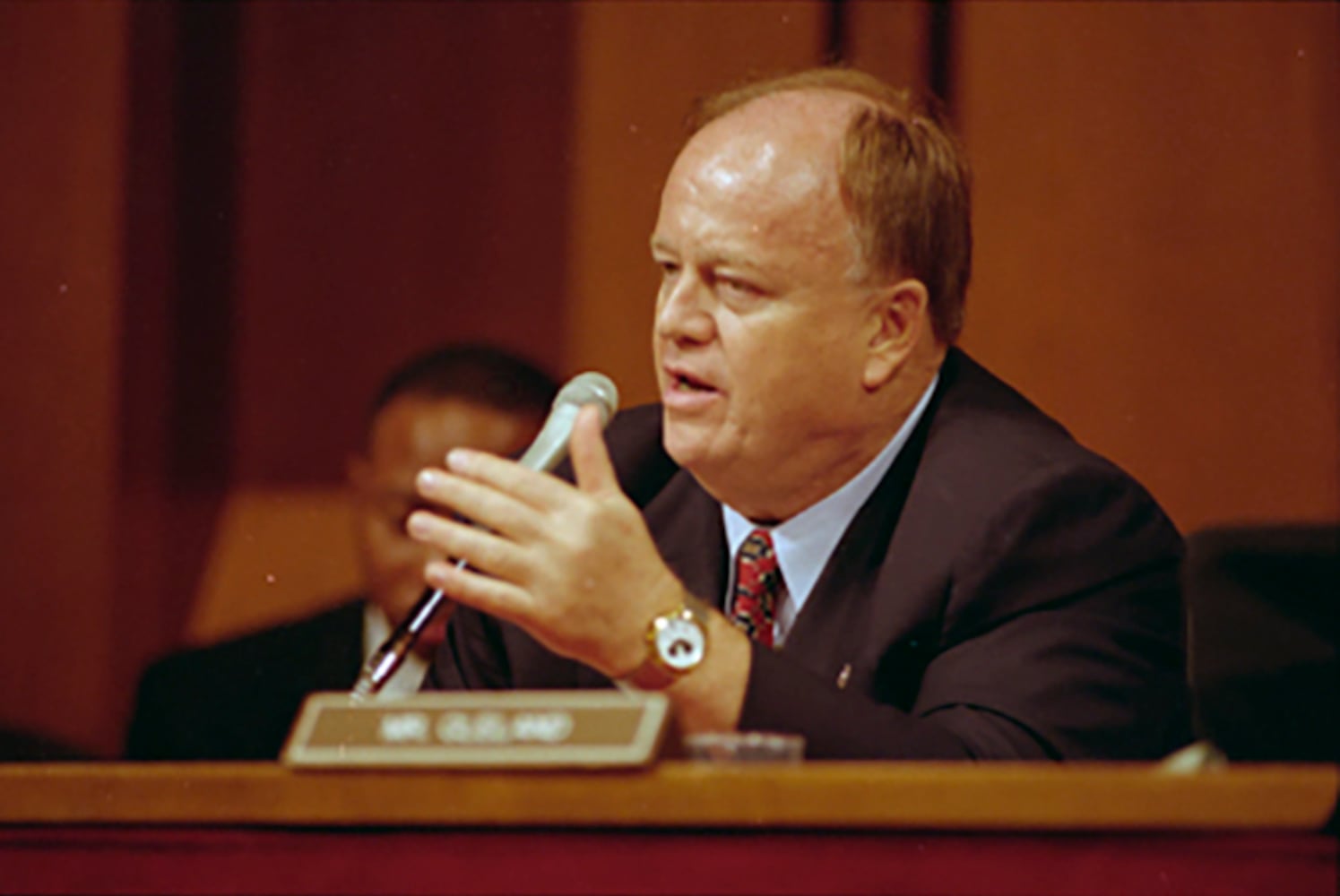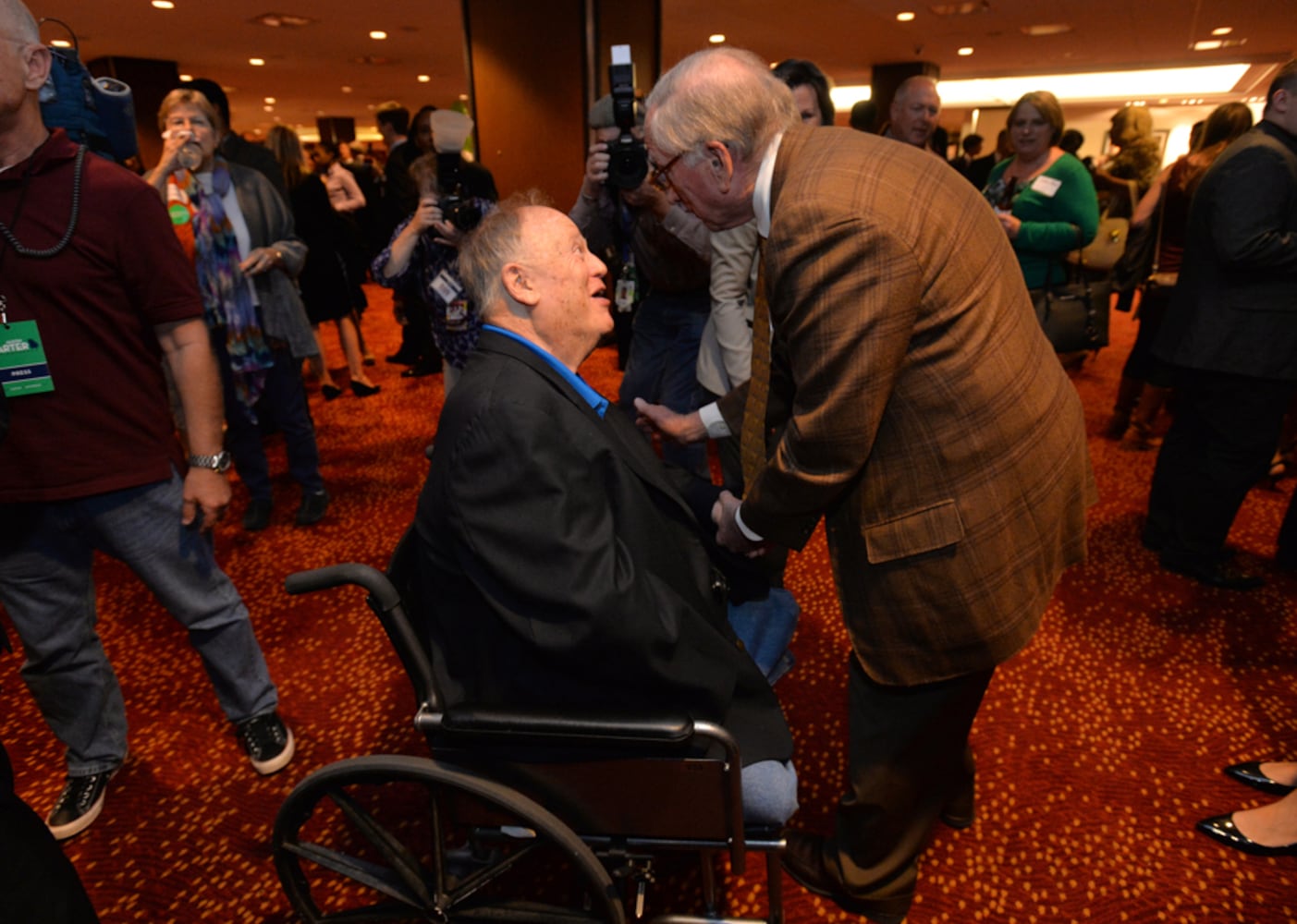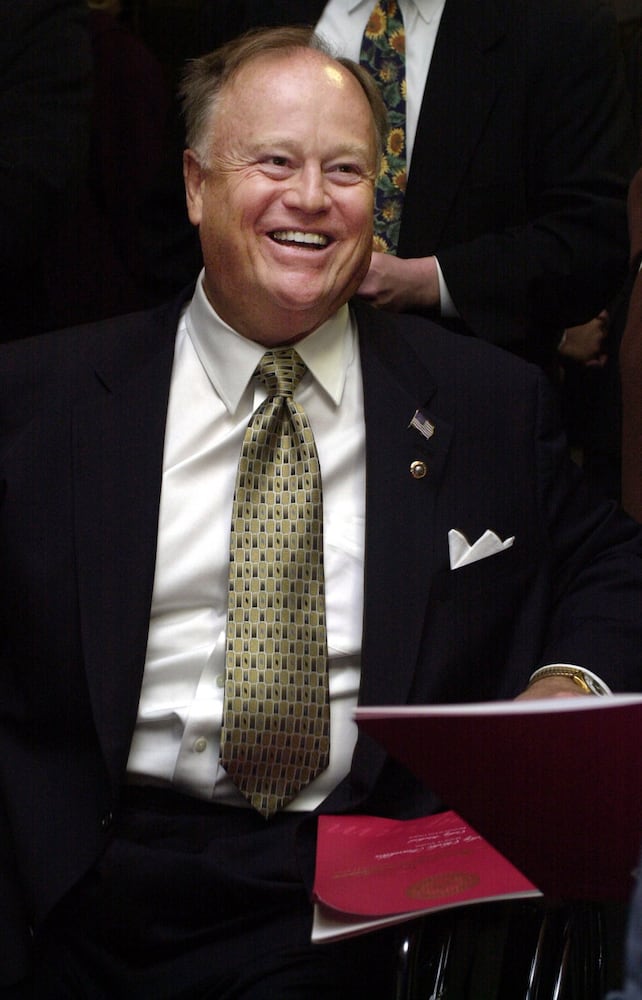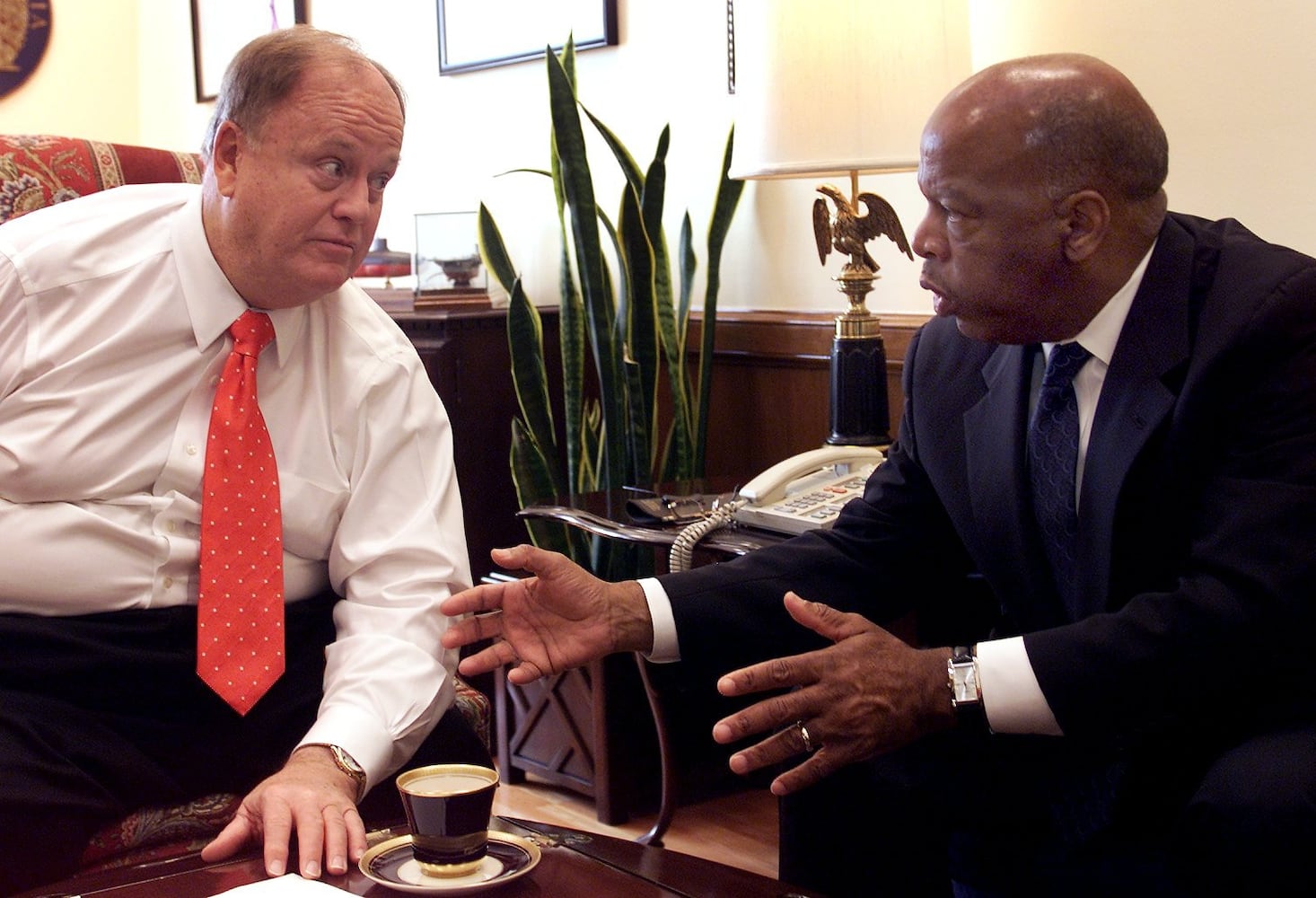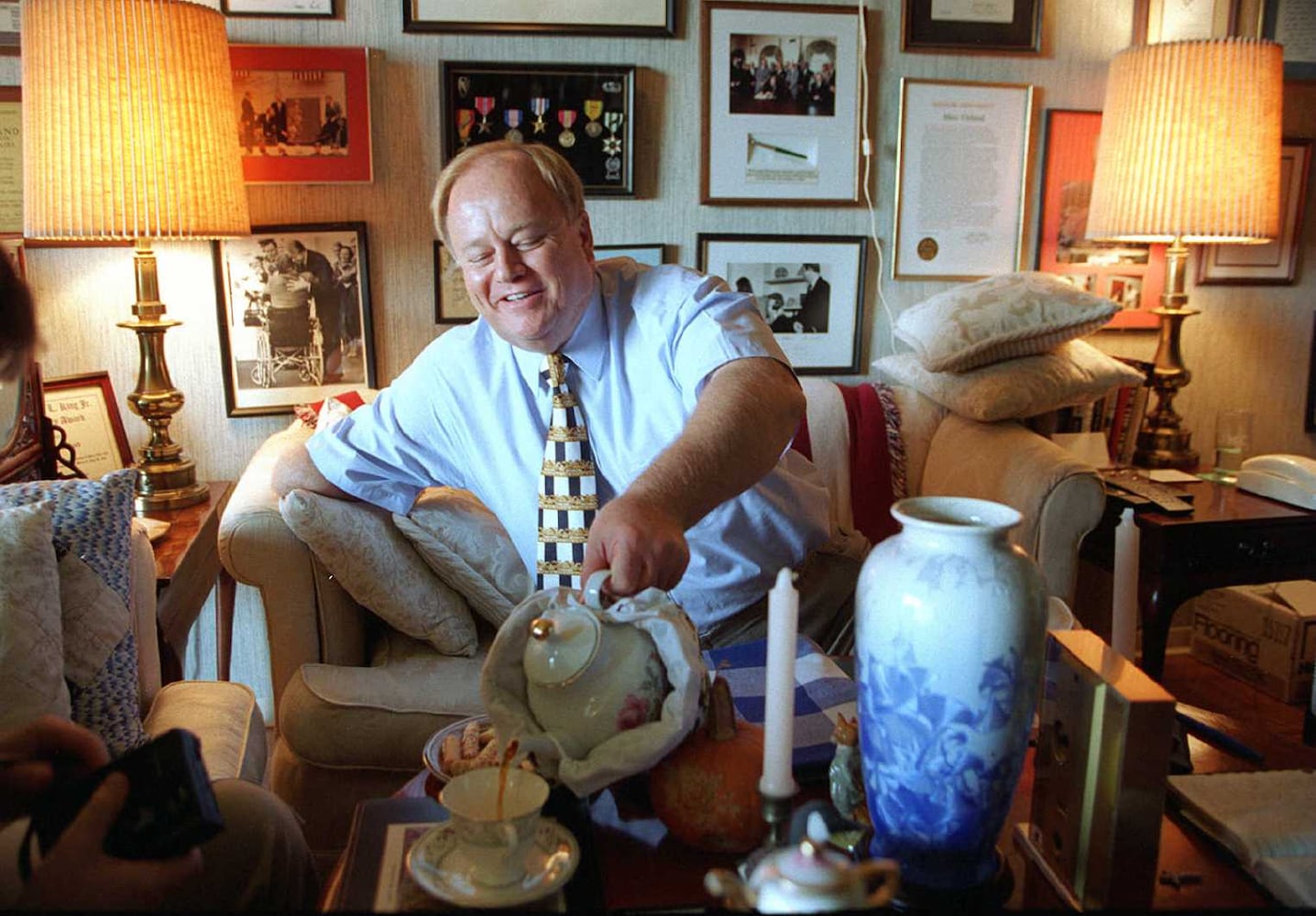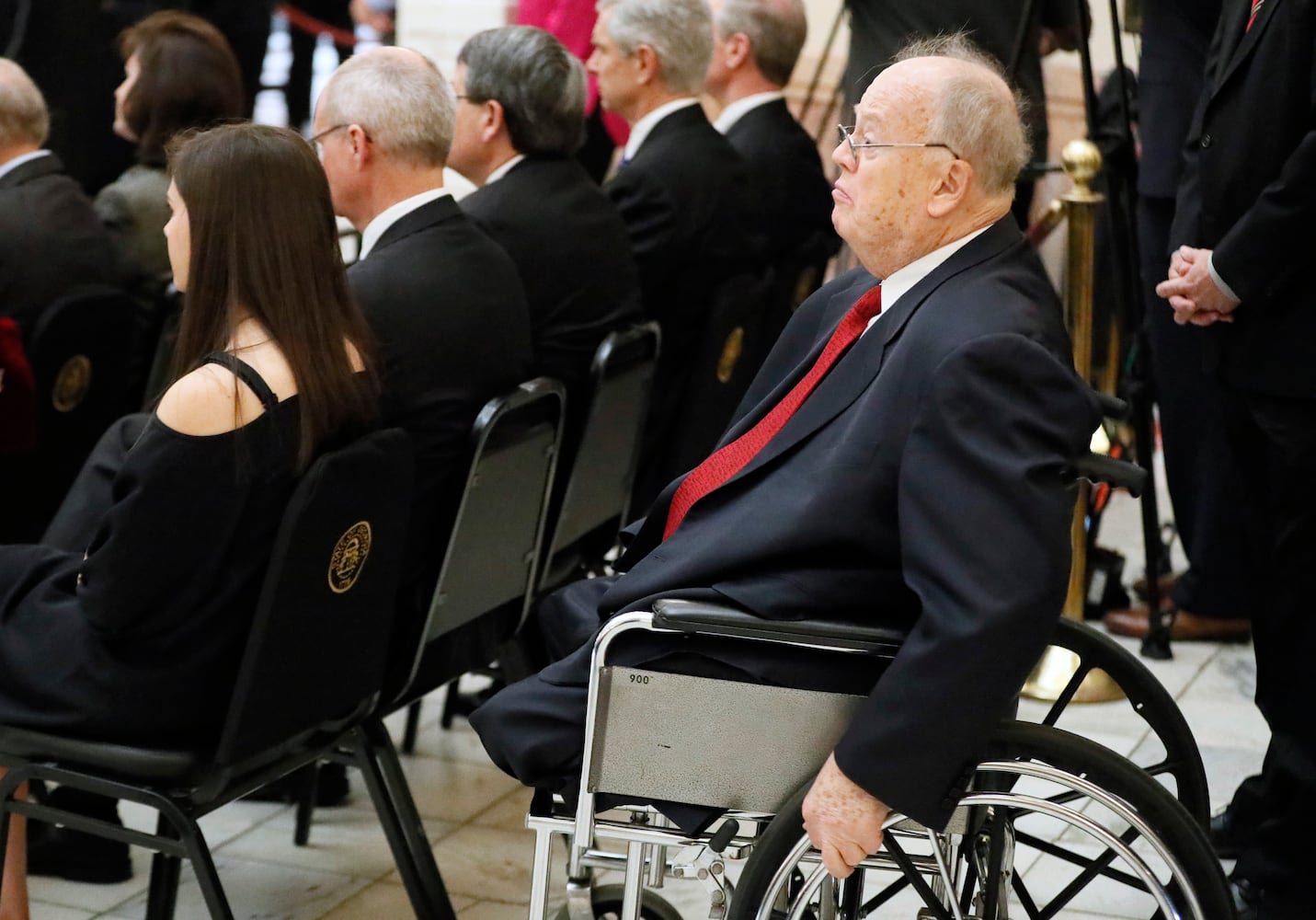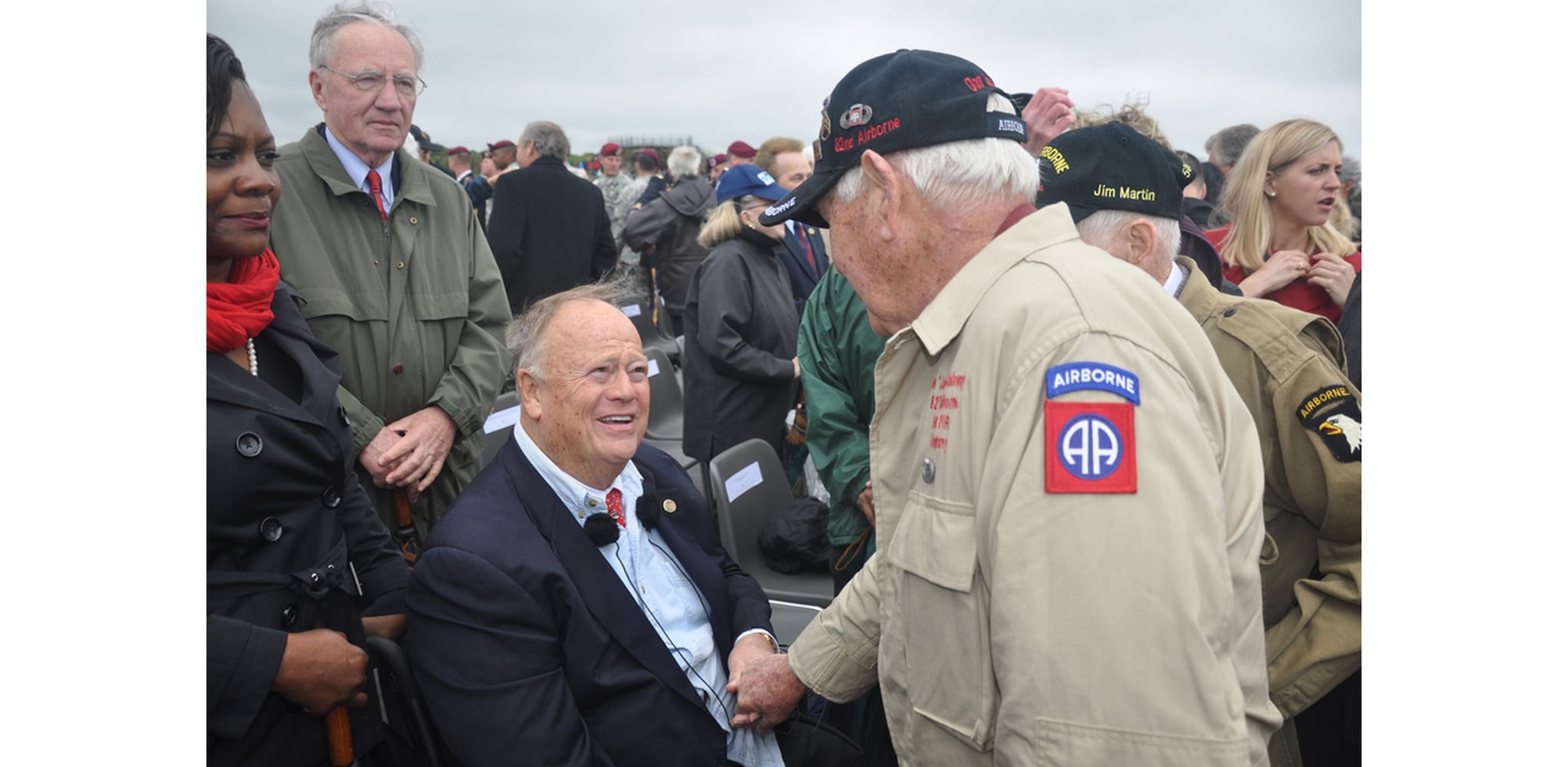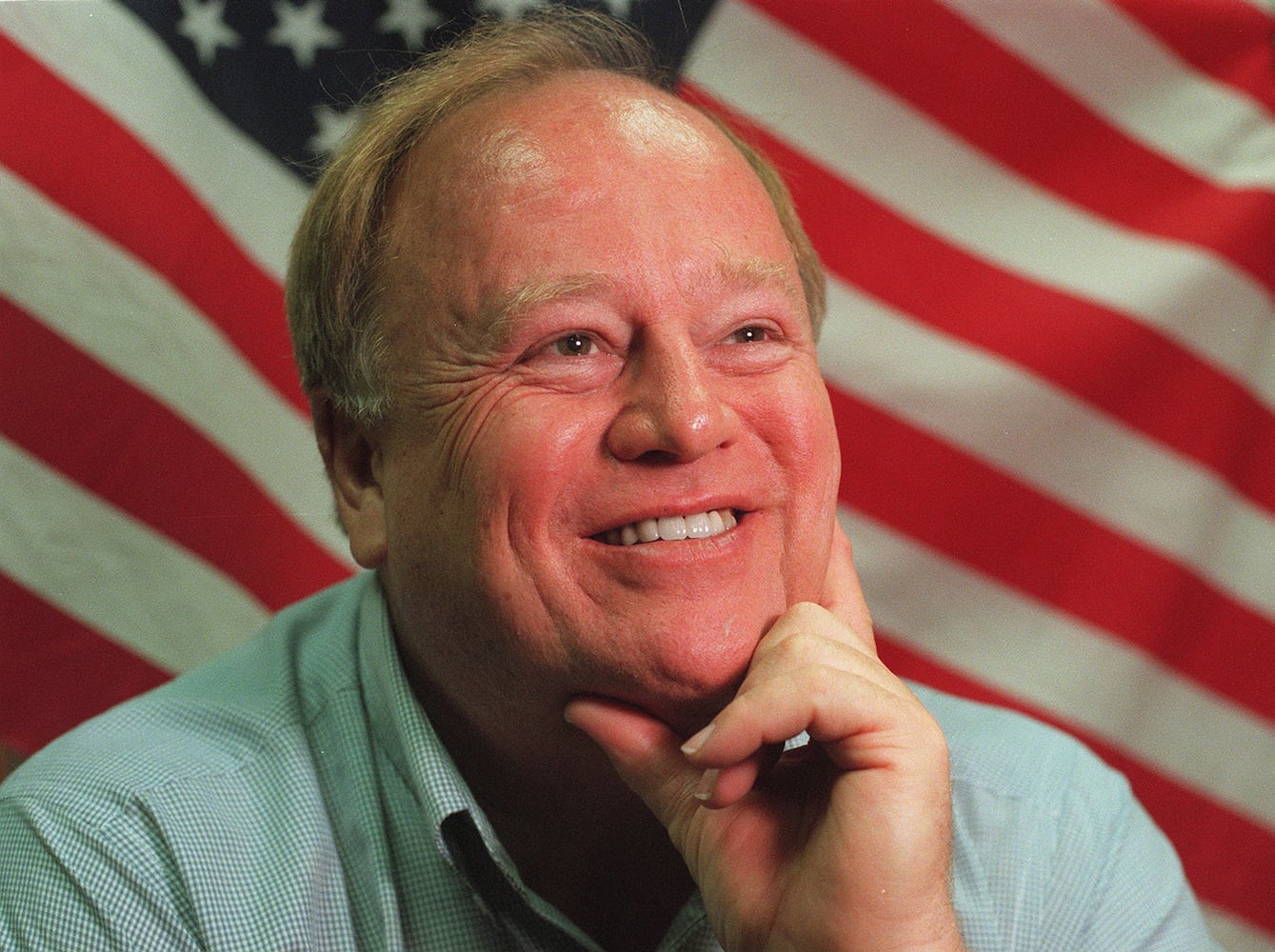Former U.S. senator and Veterans Administration leader Max Cleland died Tuesday more than 53 years after a live grenade dropped by a fellow soldier in Vietnam robbed him of three limbs.
The injuries, however, did not take the unfettered optimism and grit that helped him climb from Georgia politics to some of the nation’s top offices.
A Democrat bound to a wheelchair most of his adult life, the 79-year-old Cleland was one of the first veterans from the killing grounds of Southeast Asia to enter American politics. He took a state senator’s seat in 1971, three years after his wounding, and went on to serve as top administrator in the U.S. Veterans Administration, as Georgia Secretary of State, a U.S. senator and an appointee in other federal agencies.
Cleland died at his Atlanta home from heart failure, according to a close friend and caregiver.
Former Gov. Roy Barnes called Cleland one of the most remarkable guys he had ever met.
“What happened to him would have destroyed most men. But he persevered through it and prospered," Barnes said.
Credit: Stetson University
Credit: Stetson University
Cleland’s public career was forever identified with the conflict that, along with the fight for civil rights, defined the 1960s. In “The Vietnam War,” the 2017 documentary directed by Ken Burns and Lynn Novick, the voice first heard is his.
“To live is to suffer. To survive is to find meaning in the suffering,” Cleland told the camera, quoting philosopher Friedrich Nietzsche. He told friends that he could not bring himself to watch the entire 18-hour series — the memory was still too raw.
Cleland found his meaning in the public service he threw himself into as enthusiastically as he had volunteered for combat duty.
Even when voters turned him out of office in 2002 after a nasty, hyper-polarized campaign that caught national attention for the way his opponent assailed his patriotism, he fought through the tailspin of depression and returned, finally, back to his crowd. His final job was heading the American Battlefield Monuments Commission — overseeing U.S. military monuments and cemeteries in foreign lands.
Credit: Rick McKay/Cox
Credit: Rick McKay/Cox
A gregarious extrovert, he surrounded himself with a sprawling network of friends and acquaintances. Visitors to his senate office often remarked on the Mickey Mouse watch he wore — a reminder, he told them, “not to take life too seriously.”
Cleland never married. After his Washington years, he lived in a two-bedroom apartment in Buckhead that overlooked the skyline of downtown Atlanta, its walls covered with autographed photos of celebrities, both of the Hollywood and D.C. variety.
In retirement, he indulged his fascination with early TV westerns, never shy about his admiration for Clayton Moore of “The Lone Ranger,” whose wrong-or-right moral code made him a boyhood hero.
Throughout his public life, Cleland never called himself a hero, in part because, for decades, he mistakenly thought his wounds might have been a wartime accident of his own making.
On April 8, 1968, only days after Martin Luther King Jr. had been assassinated in Memphis, Cleland was a world away in Vietnam, a young Army captain in the 1st Air Cavalry Division. During the battle of Khe Sahn, as he exited a helicopter, he saw a live grenade that had been dropped on the ground. He bent to pick it up with his right hand, intending to toss it quickly away, and was shattered by its blast.
RELATED: Social media pays tribute to former Georgia Sen. Max Cleland
A Marine named David Lloyd was the first to reach him, using his ammunition belt as a tourniquet for what was left of Cleland’s left leg.
For more than 30 years, Cleland thought the grenade had fallen off his own web belt and blamed his own carelessness. But in 1999, Lloyd reached out to him after seeing Cleland describe his injuries on CNN’s “Larry King Live," and told him the grenade had dropped from the belt of an unnamed private exiting the chopper with him — a “newbie." On Cleland’s 50th “Alive Day,” the anniversary name he gave the to that day that transformed him, Lloyd was an invited guest. Cleland gave him an ammunition belt to replace the one he had given up in 1968.
Joseph Maxwell Cleland was born Aug. 24, 1942, in Atlanta, the only child of Juanita Wilda and Joseph Hughie Cleland, a World War II veteran.
The young Cleland spent his early life in suburban Lithonia, where he was a long-legged, 6′2″ high-school basketball star. Armed with an ROTC scholarship, he received his bachelor’s degree from Stetson University in Florida in 1964.
In 1963, a semester in Washington as an undergrad sparked his interest in politics. Cleland was in an American University dorm room when he learned of the assassination of President John F. Kennedy. He grabbed a taxi and was outside the White House, which was already draped in black crepe, when a newly sworn-in President Lyndon Johnson arrived via helicopter.
Cleland was working on a master’s degree at Emory University when he landed a D.C. internship in 1965 with U.S. Rep. Jim MacKay, a DeKalb County Democrat. There he met Buddy Darden, a future congressman from Marietta, who was interning for U.S. Sen. Richard B. Russell.
“[Cleland] was a big, strapping guy. He must have weighed 185, 190 pounds, but he was in top physical shape,” remembered Darden. “The girls loved him, too.”
During a meeting of interns with Russell, the topic of Vietnam arose. The senator, who was close to President Johnson, expressed his long-standing skepticism about putting more U.S. boots on the ground.
“It was understood that it was off the record, but I made some little notes anyway,” Cleland later said. “He said it was the most perplexing thing ever to face the American people. We’re there and we don’t want to be. We’re there and we can’t get out.”
Only a few years later, Cleland’s notes of the senator’s reservations would make front-page news in Atlanta. Far from being angry, Russell viewed the leak of his early opposition to the war as a favor.
In the South, military service was still a political pathway for anyone with those ambitions.
Only a few months after his Washington experience, Cleland joined the Army in late 1965, went to airborne school and spent two years stateside. He volunteered for duty in Vietnam, arriving in 1967 as the war was reaching a crescendo.
In the spring of 1968, Cleland and thousands of other members of the 1st Air Cavalry had been ordered to relieve Marines under siege at Khe Sanh, a mountain base in the northwest corner of what was then South Vietnam.
On the day he was wounded, Cleland had volunteered for a mission to fly to a hilltop landing zone where he and other soldiers were to install a radio to keep the division headquarters in communication with the soldiers in the field.
Only days before, Larry Burrows, who had already made a name for himself as a photographer for Life magazine, stood at the edge of a bomb crater left by a B-52.
Inside that crater was Cleland, who broke off his furious effort to dig his foxhole even deeper. “How’s it going?” Cleland asked.
“Not enough action,” the photographer replied.
The grenade changed that, redefining the 25-year-old Georgian.
The blast ripped off Cleland’s right arm and leg and shredded his other leg as shrapnel slit his windpipe. The remains of the left leg had to be amputated, but he kept his left arm.
Cleland received the Silver Star and the Bronze Star for his service. He spent eight months in Veteran Administration hospitals and rehab centers, and a lifetime of wrestling with what would become known as post traumatic stress syndrome, or PTSD.
After his hospital stays, Cleland was back in his parents' house “no job offers, no girlfriend, no future, no hope,” he told The Atlanta Journal-Constitution in 2017. But the dream of a political life didn’t go away. “I’m laying there, thinking that I wanted to run for office someday, but I don’t even have a right hand to shake people’s hands,” he said.
His left hand was enough.
The 28-year-old took a run at the state senate seat for his district in 1970, campaigning on two artificial legs that he would ultimately give up as too troublesome. And he won.
Cleland served two terms in the chamber, leaving to run for lieutenant governor in 1974. He had the support of Gov. Jimmy Carter, who was at the end of his four-year term, but it didn’t help. Cleland finished third in a Democratic primary ultimately won by Zell Miller, who would go on to win the general election as well.
Cleland’s defeat pointed him toward Washington. He drove there in a gold Oldsmobile Toronado equipped for a man with one good limb, and became a staffer on the Senate Veterans’ Affairs Committee in 1975. And when Jimmy Carter won the presidency the next year, he put 34-year-old Cleland in charge of the what is now the U.S. Department of Veterans Affairs, with its 226,000 employees, 172 hospitals and 81 nursing homes.
Cleland clashed with a bureaucracy that had its roots in World War II and was unprepared for the crush of casualties from the nation’s most controversial war.
During his watch, VA doctors admitted the existence of post-traumatic stress disorder. “For the first time ever, you could get combat-related pay even if you came back without visible wounds,” he wrote.
But when Carter lost his re-election bid in 1980, Cleland was again without a job.
In 1982, Cleland won a statewide election for secretary of state.
He contemplated a 1990 run for governor but abandoned that aspiration after the leak of an audio recording of a phone sex tape of him and a former girlfriend. The episode was embarrassing, but had an unexpected effect. “It not only raised my profile in the state in a way no amount of political advertising could, it also showed that I was, despite my handicaps, a full-blooded American male,” Cleland would later write.
That November, Democrat Zell Miller received 766,662 votes, or 53%, to win the race for governor. An unopposed Cleland, running for re-election as secretary of state, received 1,061,341 votes.
Cleland was just starting his fourth term in 1996, when U.S. Sen. Sam Nunn announced he would not run for re-election. Cleland entered the race and won. He spent his single Senate term focused on the military issues that were his passion and where he believed he could do the most for Georgia. Like Russell and Sam Nunn before him, Cleland joined the Senate Armed Services Committee, where he worked to secure funding and additional missions for the state’s 13 military installations.
He also expanded education benefits for veterans through the G.I. bill and completed a decades-in-the-making project to bring a new veterans cemetery to the state, which became the Georgia National Cemetery in Canton, Georgia.
He joined a bipartisan club of six Vietnam veterans in the Senate that also included: Bob Kerrey, D-Neb.; Chuck Hagel, R-Neb.; John Kerry, D-Mass.; Chuck Robb, D-Va.; and John McCain, R-Ariz.
All came to his aid in 2002, when his re-election bid was upended by charges that he had not sufficiently supported President George W. Bush’s reaction to the 9/11 attacks — specifically, Republican versions of a new Department of Homeland Security. His general election opponent, then-U.S. Rep. Saxby Chambliss, painted him as soft on the war on terror in a 30-second TV ad that included images of Osama bin Laden, author of the 9/11 attacks, and Iraqi dictator Saddam Hussein, whom the Bush administrator had spotlighted as a target for a future war.
In his push to remain in office, Cleland had also voted in favor of President Bush’s move to declare war on Iraqi dictator Saddam Hussein, which the Georgia senator later said was the greatest regret of his years in the chamber.
But, the Cleland campaign, judging that Georgia voters had grown to know him over three decades, was slow to respond to the attack ad. The support of the Senate’s Vietnam club wasn’t enough to help.
Cleland’s loss came amid a Democratic debacle that also saw Gov. Roy Barnes and House Speaker Tom Murphy go down in defeat.
“It fills me with sadness that it is considered an acceptable political tactic to question the patriotism or military record of any serviceman or servicewoman who served an honest tour of duty in a war zone,” Cleland would later write in a 2009 memoir. The book’s title: “Heart of a Patriot: How I Found Courage to Survive Vietnam, Walter Reed and Karl Rove.”
He noted that U.S. Sens. John McCain, R-Ariz., and John Kerry, D-Mass., endured the same treatment in their runs for president.
The defeat was crushing. By his own account, Cleland sank into a deep depression.
The rejection by voters after a political career that had stretched more than three decades sent Cleland into a tailspin of massive depression, eventually forcing him to come to grips with the trauma of a war he had attempted to bury with his lifelong plunge into politics.
Credit: PHIL SKINNER
Credit: PHIL SKINNER
In a foreword to his 2009 memoir, aimed at his fellow wounded veterans Cleland wrote this: "I’ve found in my own life that I had to exude positive energy into the world in order not to be overwhelmed with sadness and grief over what I have lost.
“My body, my soul, my spirit, and my belief in life itself was stolen from me by the disaster of the Vietnam War. I found solace in attempting to ‘turn my pain into somebody else’s gain’ by immersing myself in politics and public service.'”
Cleland leaves behind a number of cousins and close friends.
Cleland will be buried early the week of Nov. 14 with full military honors at the Georgia National Cemetery in Canton, Ga., alongside his mother and father, Juanita and Hugh Cleland. A public memorial service will be scheduled for the near future, with details to follow.
In lieu of flowers, donations may be directed to the Max Cleland Leadership Program or the Max Cleland Endowed Scholarship Fund at Stetson University in DeLand, Florida. Messages of condolence may be sent to the Office of former U.S. Sen. Max Cleland, 2460 Peachtree Road, Atlanta, Ga. 30305.
Keep Reading
The Latest
Featured
